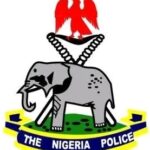By: Hassan Salihu
The June 12, 1993, presidential election in Nigeria stands as a watershed moment in the country’s democratic journey, a pivotal event that continues to shape the nation’s political landscape. Despite its profound significance, the election was not without its share of controversies and challenges. Here, I delve into some key points that highlight the intricate complexities surrounding this historic election.
Significant Points to Note About June 12, 1993, Presidential Election in Nigeria.
1. The election took place under military rule, which limited the democratic environment through measures such as banning certain politicians, cancelling presidential primaries, and forming government-created political parties, among others.
2. The majority of Nigerian politicians, both then and now, have demonstrated an undemocratic approach to politics. This was starkly evident in their actions following the annulment of the 1993 election, a betrayal of the democratic principles they were meant to uphold.
3. The military showed reluctance in overseeing the transition, manifesting an apparent reluctance to vacate the political scene.
4. Divisions within the military affected the transition process, a situation that the military President could not control.
5. The military government failed to respect the decree governing the transition, which had prohibited court interference in the election.
6. Allegations emerged of a pact between the military President and General Abacha on a succession plan that gave the latter the audacity to throw spanners into the wheel of the transition programme.
7. Voter turnout was low, reflecting the reality of people’s participation. Although subsequent adoption of technology has improved electoral processes, voter turnout remains low, countering the concerns raised about voter turnout in the June 12 election.
8. The annulment of the election, announced suddenly and in an uncoordinated manner through an unsigned press statement on June 23, 1993, sent shockwaves through the nation, leaving many in disbelief.
9. The President’s national broadcast made on June 26, 1993, annulling the election contained false claims about the election, including bribery allegations, which he later retracted in his book published this year.
10. The presidential election tribunal, established through a military decree, was not allowed to address election complaints before the President announced the annulment.
11. The winner’s attire on election day, displaying his party’s symbol, sparked controversy. This seemingly innocuous act was seen as a violation of electoral rules and raised questions about the candidate’s respect for the democratic process, further complicating the election’s narrative.
12. Voting time was strictly adhered to after the accreditation of voters.
13. By 2 pm, voting had ended virtually everywhere on the election day.
14. The counting of votes took place at the various polling booths, and the electoral officials announced the results.
15. The option A4 voting method was adopted by the electoral commission in conducting the election, where voters queued up to cast their votes openly.
16. Despite Abiola’s pan-Nigerian appeal, as reflected in voting patterns, the election later became a sectional issue as people reacted to the annulment.
17. Obasanjo’s comments on the election highlighted Abiola’s limitations, bordering on the claim that he was not a messiah needed in the country.
18. A significant amount of public funds were used to suppress the election’s legacy.
19. The judiciary played a partisan role before and after the election, particularly in granting an injunction to the infamous Association for Better Nigeria led by one Abimbola Davies stopping the election some hours before it was held.
20. Forces advocating for election validation faced brutal suppression.
21. The National Democratic Coalition (NADECO) was formed to fight for the June 12 election, representing various sections of the country. NADECO played a crucial role in mobilizing support for the election by advocating for its validation, becoming a significant force in the fight for democratic rights in Nigeria.
22. Abiola’s party later traded off the election for an illegal National Interim Government headed by Ernest Shonekan.
23. Some pro-June 12 politicians accepted cabinet positions in Abacha’s government, while others faced harassment and persecution.
24. Some Nigerians went into exile due to the draconian rule that followed. This period was marked by widespread human rights abuses, political persecution, and a crackdown on dissent, leading many to seek refuge in other countries, highlighting the severe consequences of the election’s annulment.
25. The democratic content of the electoral process was limited, but lessons can still be learned from it in electoral integrity by Nigerians.
26. Prof. Nwosu’s role as the Head of the National Electoral Commission (NEC) in ensuring the election’s conduct, despite obstacles such as harassment, insults, and being put under surveillance, was commendable.
27. It is arguable whether the country has not regressed in its democratic transition in some respects since June 12, 1993, as the votes for the President elected in the 2023 election hovered around the exact figure recorded for Abiola thirty years earlier.
28. Abiola’s campaign document, “Farewell to Poverty,” resonated with Nigerians; whether he could have implemented it remains speculative.
The assertion by Nigerians that the June 12, 1993, presidential election was largely peaceful, free, and fair is correct. The low voter turnout recorded in the election pales into insignificance when judged against the consistently low turnout that has been recorded in subsequent elections. For instance, slightly above eight million voted for the incumbent President in 2023, despite the significant increase in the voter register to over 93 million and the absolute population of over 200 million Nigerians. One can then see the futility of labelling the election as having low voter turnout. Over eight million voters cast their ballots for Abiola in the election when the voter register and the country’s population were not as extensive as they are now.
Prof. Hassan A. Saliu, Department of Political Science, University of Ilorin.



